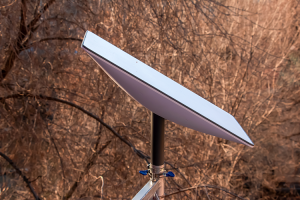In today’s digital age, the internet has become an essential tool for education. With the rise of remote learning and online classes, a reliable internet connection is crucial for students to access learning materials and participate in class. However, internet connectivity is not always stable, and schools can experience disruptions that can negatively impact students’ learning. This is why having a backup internet connection is critical for schools.
The Department for Education (DfE) recognises the importance of having a backup internet connection in schools. In their guidance, they state that “a backup connection is recommended to ensure that schools can continue to deliver their statutory responsibilities in the event of an internet service provider (ISP) failure.” The guidance further notes that schools should have a backup connection that is independent of their primary connection to minimise the risk of a single point of failure.
There are several reasons why schools should consider implementing a backup internet connection.
Firstly, a backup internet connection can help minimise disruptions to learning. A primary internet connection can experience downtime due to various factors, such as a network outage, equipment failure, or a cyber-attack. In such instances, students and teachers cannot access online learning resources or participate in virtual classes. This can cause significant disruptions to learning, and students may fall behind in their studies. However, with a backup internet connection, schools can continue to deliver their lessons and ensure that learning is not disrupted.
Secondly, a backup internet connection can help schools maintain their reputation. Schools are under pressure to provide high-quality education to their students. However, disruptions to learning due to internet downtime can negatively impact a school’s reputation. Parents and students may lose confidence in the school’s ability to deliver quality education, and this can have long-term consequences for the school’s enrollment and funding. By having a backup internet connection, schools can minimise the risk of disruptions to learning and maintain their reputation as a reliable educational institution.
Thirdly, a backup internet connection can help schools comply with their statutory responsibilities. Schools have a legal obligation to provide education to their students, and this includes ensuring that students have access to learning resources and participate in classes. With the rise of online learning, schools rely heavily on the internet to deliver their lessons. However, if the primary internet connection fails, schools may be unable to deliver their statutory responsibilities, which can have legal implications. By having a backup internet connection, schools can ensure that they continue to deliver their statutory responsibilities and avoid legal issues.
In conclusion, having a backup internet connection is crucial for schools. It can help minimise disruptions to learning, maintain the school’s reputation, and ensure that schools comply with their statutory responsibilities. The DfE recognises the importance of having a backup internet connection and recommends that schools implement one that is independent of their primary connection. Therefore, schools should take this guidance seriously and ensure that they have a backup internet connection to provide uninterrupted learning for their students.




